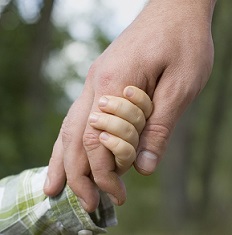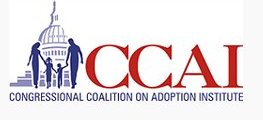
In Tysons Corner, VA adoption is not an impossible dream. There are about 2,500 adoptions in the Commonwealth of Virginia each year. This means that there are children to adopt.
Why then do people think it is so hard to adopt a child? The answer is that most people interested in adoption do not know how to begin the process. Adoption is not usually a simple and unemotional process, but knowing the proper directions and techniques can make the process work for you. Most likely you could have a child in your home within the next year.
There are four basic ways to become an adoptive parent. First, there are a number of reputable adoption agencies, both locally and nationally, that still do traditional agency adoptions. Second, Virginia, the District of Columbia and forty-six other states allows for direct placement of children by their birth parents. Third is adopting a foreign-born child. Finally, there is the adoption of a special needs or older child.
- Adoption Agencies
- Adoption agencies provide professional assistance in placement of a child in your home and are usually the easiest and least emotional method. Reputable adoption agencies have a committee which decides what family would be best for a particular child. Often, adoption agencies handle the termination of all parental rights before placing the child in your home. While adoption agencies can provide many beneficial services, most have maximum age restrictions (usually 38 to 42 years old) and have more families waiting for children than there are children available.
- Private Adoption
- Private adoption is a legal and very popular method of adoption. Private adoption usually involves the arrangement of the direct placement of a child by a pregnant woman with the adoptive parents. This method of adoption allows the adoptive parents to have more control over the process in that they can proceed at their own level of aggressiveness as opposed to just waiting for a child to be placed in their arms. Private adoption involves the creation of a strategy and an advertising plan to find an acceptable, pregnant woman. Then you work with her through the pregnancy and adoptive legal process.
- International Adoption
- There are a number of agencies, both locally and nationally, that deal with foreign-born children. For those interested in adopting a toddler, international adoption is often the best route.
- Public Agencies
-
County social services and many adoption agencies also handle “special needs” children. A special needs child may have physical or mental handicap, be older (usually at least nine years of age) or must be adopted with a sibling. Special needs adoptions are often subsidized by the local, state and federal governments. Thus, the government often financially assists the adopters with monthly payments to help raise the child, medical needs and the child’s special need as well as your legal and agency fees.
The total costs in a Virginia traditional agency adoption, a private adoption, or an international adoption are normally within range of $18,000 to $60,000. There are ways to defray some of these costs including a Federal Tax Credit. In addition, many employers now offer some type of adoption assistance.
As an attorney, my practice is devoted to helping people like you add a child to their family. In the past, I have represented clients in over 4,000 adoptions and believe my experience allows me to provide you with some unique experiences.
There are three distinct roles that I play during the adoption process. First, I am available to assist you in determining what type of adoption is best for you as well as to direct you to the best and most reputable resources. Second, I can help you through the practical and psychological aspects of adoption such as finding and dealing with a birth mother or helping you through the home study process. Third, I provide my clients with efficient services through the legal system to finalize their adoption. When your case is properly handled from the beginning, you can reduce the chances that your case will become contested.
If you would like my assistance in making your dream into a reality, call at Adoption Legal Services and I can schedule a time for us to meet.
- Questions to Ask Yourselves
- Many couples and individuals that come to me begin their adoption planning after lengthy attempts at unsuccessful infertility treatments. They often have felt many psychological pressures, including feelings of inadequacy, denial and blame. The emotions have often stressed their marital relationship.
The adoption process, while emotional, is a joint project for a couple. Successful adoptions usually take planning, time, resources and a joint coordination. If you use this experience to work together, you will not only build your family, but will strengthen your marital relationship.
I often suggest to my clients that they start the adoption process by going away for a weekend to a bed-and-breakfast or the beach. You need to get away from your telephones, responsibilities and daily chores to meaningfully communicate with your partner. Go somewhere you can relax, take strolls, sit and talk and maybe open a bottle of wine over dinner.
The following eight questions are a good starting point to begin your discussions. If you are single, you should also think about these subjects.
- 1. Why do you want to adopt? Everybody has their own individual reasons.
- You should articulate your reasons between yourselves so each of you will understand the other’s perspective. You will be asked this question during your adoption by an adoption agency, a birth mother and family and friends. What are your motivations and expectations? How do you feel about raising a child not yours by birth?
- 2. Are you both ready to pursue adoption?
- Adoption needs to be a joint decision between a couple. Are both of you ready? Is now the time to proceed beyond infertility treatment? You should not pursue adoption, other than gathering information, unless you are both ready. Once you have made the decision, then you should commit the necessary resources to proceed with your goal.
- 3. What race or national heritage will you consider?
- There is a need to balance the desire of having a child who looks like you with the understanding that the greater your flexibility, the easier and quicker it could be to have a child placed in your home. This is not to advocate that you accept any child, and quite to the contrary, I would advise you to choose only the child you desire. You should explore between yourselves not only your first choice but also what other races or heritages you would consider, including African-American, Native American, Asian, Hispanic or a bi-racial child. Many adoptive families are presented opportunities where a quick and definitive response is necessary to a birth parent or an agency and, without preparation, that opportunity could be lost forever.
- 4. What age child will you consider?
- Do you want a newborn or would you prefer a toddler or an older child? Contrary to popular belief, in domestic adoptions, it is usually easiest to find newborn children. In private adoptions, children are usually placed at one day old when they are released from the hospital. In agency adoptions, the child is usually placed from the hospital. In foreign adoptions, children are usually between one and three years of age. In county social service programs, healthy Caucasian children are normally over eight years old while physical or mentally handicapped children are available at almost any age.
- 5. What health factors are important to your decisions?
- Obtaining complete and accurate medical background information is a problem in most adoptions. Domestic adoptions usually have better health information than foreign. An early decision should be whether you would consider a child with a known health problem. Most often you will learn during the adoptive process of potential problems such as drug or alcohol use or possible hereditary conditions. For those situations, you will need to educate yourself as the information unfolds and then re-evaluate.
- 6. What does your budget allow?
- The cost of adoption agencies and private adoptions can run from a few thousand dollars to $60,000+ and those figures could vary depending on circumstances. Foreign adoptions, depending on the country and program, cost from $18,000 to $50,000. Special needs children can be available without any costs to you. The couple needs to determine what their maximum ceiling will be and use that in determining if a particular situation is worth pursuing. For example, would you consider paying $9,000 for a birth mother’s medical costs or should you search for a birth mother with health insurance. A corollary to this question is how are you going to pay for the adoption? The couple should have a plan to finance the adoption, which may include sources such as savings, family or home equity loans.
- 7. What risks are you willing to take?
- Agency and foreign placements generally have fairly low levels of risks involved. This lower risk level must be balanced with what is often a long waiting period for an agency adoption and a toddler instead of a newborn in a foreign placement. Private adoption has a moderate level of risk in that you often take the child home before the mother can legally consent to the adoption. Many couples are willing to take this risk because of how quickly a placement can often be made. But, the added risks lead to added stress.
- 8. What level of post-birth contact will you consider?
- Adoptive parents often fear post-birth contact with the birth mother because they fear if she ever saw this wonderful child, she would want the child back. The reality is that almost all birth mothers are satisfied with their placement decision and do not want to interfere with the raising of the child. In some of my cases, birth mothers have wanted to maintain occasional visits with the adoptive family. In the vast majority of my cases there have been agreements, usually informally, to exchange pictures and updates. In other cases there has been no fixture contact. You need to discuss what level of contact you would be comfortable with and if there is some flexibility depending on the particular birth mother.


